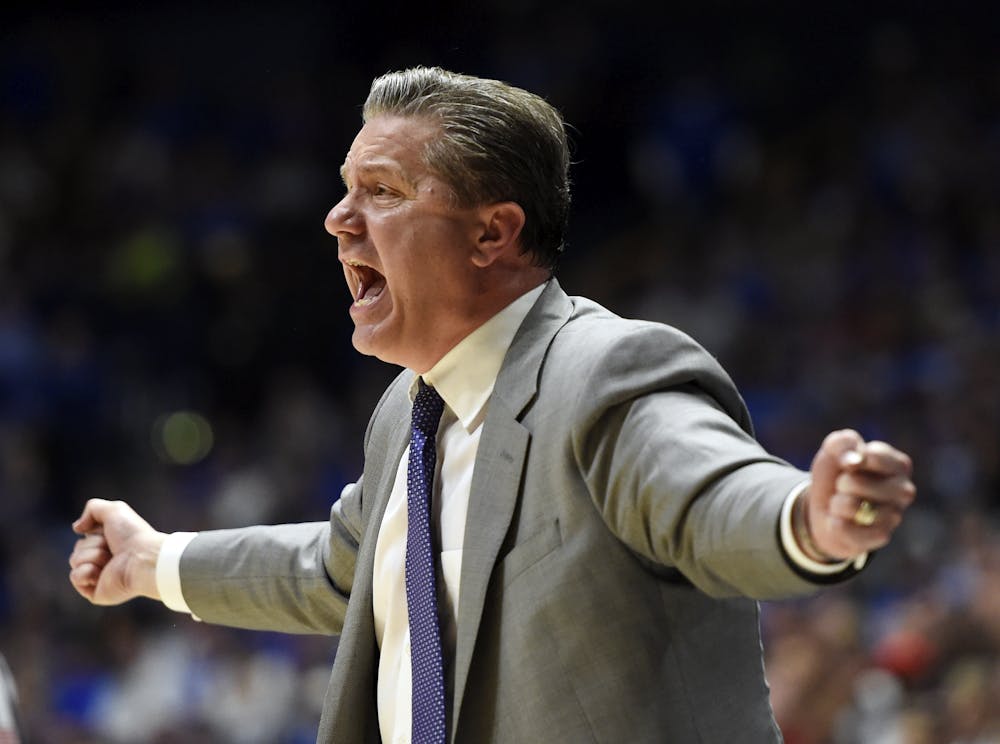NASHVILLE, Tenn. — Minutes after defeating Georgia to advance to the SEC semifinals, Kentucky coach John Calipari was asked a question.
“Do you think Georgia is a tournament team?”
It’s a question spoken in shorthand, understood by college basketball players, coaches, fans and followers.
In other words, do you think Georgia will make the NCAA Tournament?
“They deserve it,” Calipari said. “I believe that.”
He was speaking just one week before the NCAA Tournament, college basketball’s premier postseason championship competition. Sixty-eight teams are selected from around the country for a chance at advancing to the NCAA Championship game in a single elimination format.
And for one week in early March, every college basketball coach in America is obsessed with it.
But they also struggle to understand it.
During last year’s SEC Tournament, SEC coaches lamented the inconsistent conditions by which the NCAA selection committee chose which teams to let in and which ones to shun.
Before games, after losses and during halftime interviews, the central focus of the SEC Tournament was on the tournament that came right after.
And this year’s tournament was no exception.
For the most part, member teams of the SEC believe that they are underrepresented in the NCAA field each year. Coaches scour statistics and numbers — strength of schedule, Rating Percentage Index (RPI), head-to-head records — in hopes of figuring out the formula used by the committee to decide which teams get sent to the Big Dance.
Some find it harder to understand than others.
“I struggle with it,” South Carolina coach Frank Martin said after South Carolina was eliminated in 2016. “I’m not real intelligent, but I struggle with it.”
Last year, just three SEC teams made it into the NCAA Tournament — Kentucky, Texas A&M and Vanderbilt.
On Sunday, five SEC teams made it — Kentucky, Florida, Arkansas, Vanderbilt and South Carolina.
Last week, SEC Player of the Year and Gamecocks forward Sindarius Thornwell was asked what he understands about how teams are let into the NCAA Tournament.
“You know, I don’t know,” Thornwell said “I don’t really know how the RPI, wins, losses thing goes.”
And it’s not just players who don’t understand how their postseason fate is decided. At last year’s SEC Tournament, Calipari bashed the selection committee ad nauseam.
“What disappoints me is that there are teams that lost, like some of our (SEC) teams have, and all of a sudden, it’s okay. They’re in,” Calipari said. “And then one of our teams loses, they go from eligible to first four out (of the tournament). You’re like, I don’t get it.”
But maybe the most outspoken coach at last year’s tournament was Martin.
“I don’t care what anyone else has to say. I don’t care what their opinions are,” he said.
“I’d like to see a lot of these so-called teams that got better looking numbers than us play in our league 18 games and see what their record would be at the end of the year.”
The mood at this year’s tournament was more of the same.
And I find myself agreeing with the coaches.
Each year there are teams who are left out of the tournament who feel they should have made it, and teams that made it who may not be as deserving as others.
But, I get it — the selection system is complex. It’s intricate.
But it is obviously flawed.
So, selection committee, start here: After all 68 tournament teams are announced, publicly release a short, written explanation detailing why each team was allowed in.
And for all the teams who didn’t quite make it (say, for example, the last 10 bubble teams), provide a short explanation for why they weren’t quite good enough in the committee’s eyes.
At the very least, it’ll help coaches and players understand what they didn’t do well enough to earn a shot at an NCAA Championship, and what they need to do better for next year.
It’s not perfect. It’s not a permanent solution.
But for an admittedly limited selection system trying to choose between hundreds of schools across the nation, at least it’s a start.
Ian Cohen is a sports writer. His column appears on Tuesdays. Contact him at icohen@alligator.org and follow him on Twitter @icohenb.
Kentucky head coach John Calipari yells to his players in the second half of an NCAA college basketball game against Arkansas for the championship of the Southeastern Conference tournament Sunday, March 12, 2017, in Nashville, Tenn. Kentucky won 82-65. (AP Photo/Sanford Myers)






